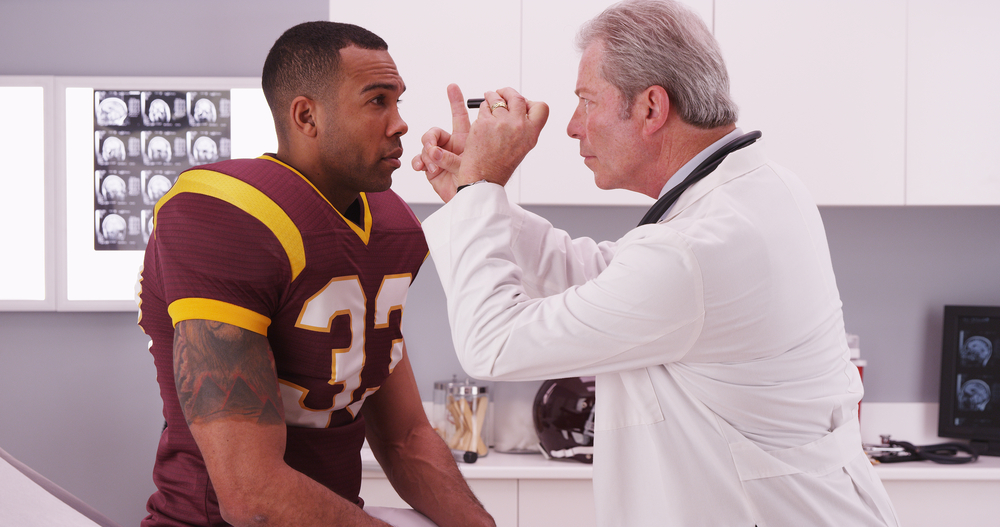
If you have ever been involved in an accident or suffered an injury affecting your head, you may have been diagnosed with a concussion. A concussion is considered to be a mild traumatic brain injury (TBI), a type of injury that is caused by a bump, blow, or jolt to the head or neck that disrupts the normal function of the brain. In mild TBI’s, the disruption to the way that the brain works is only temporary, and after a brief period should return to normal. Unfortunately, many people who experience a concussion don’t realize the high risk for long-term effects, including an increased risk of dementia in the future. Research suggests that some damage caused by a concussion can last for decades after the original injury, with effects such as insomnia, anxiety, sensitivity to noise and light, and cognitive difficulties such as issues with memory and concentration.
How Do I Know if I Have a Concussion?
The symptoms of a concussion usually appear within a few minutes or hours of experiencing the head injury. However, it’s important to be aware that sometimes the signs of a concussion can be mild, and this can make them harder to spot. Some of the most common symptoms of a concussion include:
A headache that doesn’t ease with painkillers and that doesn’t go away by itself within a few hours or so. This is usually accompanied by pain in the base of the skull and neck, behind the eyes, across the forehead, and in the temples.
Dizziness and generally feeling unbalanced and unsteady on your feet.
Feeling nauseous.
Vomiting.
Memory loss.
Changes in your vision, such as blurriness, double vision or unusual flashes, and other abnormalities.
Unusual behaviors, such as mood swings.
Feeling confused, like you have ‘brain fog’.
Struggling to stay awake.
If you experience these symptoms following an accident or injury, it’s important to consider scheduling an evaluation by someone trained in identifying concussions. Explain the nature of the injury to them and the effects that you have been experiencing.
Concussion Treatment and Recovery
Recovery from a concussion is actually a fairly complex process. For this reason, it’s strongly recommended that the management of the treatment and recovery process is tailored to the individual needs of each patient. Recovery is typically broken down into stages. These are as follows:
Stage One: Acute Symptomatic Phase
This is the stage where symptoms are at their most obvious and severe. In most cases, this stage lasts less than 3 days, and during this time it’s crucial that the patient rests from the use of screens and too much activity. After the first 48 hours, it may be possible for patients to undertake activities that only very lightly stimulate their brain – such as watching tv, short periods of gentle reading, and listening to music. Short, gentle walks and mild chores can also be undertaken. However, if you start to notice your symptoms getting worse, it’s crucial that you stop and rest. If you experience lossu of consciousness for more than a minute, repetitive vomiting, seizures, severe neck or head pain, or loss of vision, you should see your doctor immediately.
During the first 24 hours, you should avoid any medications that can increase your risk of bleeding, such as non-steroidal anti-inflammatories and aspirin. You should also drink plenty of water and avoid alcohol and caffeinated drinks. It’s imperative to see a functional neurologist in the early stages to prevent long-term health risks. We utilize state-of-the-art saccadometer testing for TBI patients to measure the tiny movements of the eyes and pupils that cannot be detected during a normal examination. This data enables us to understand which area or areas of the brain are affected and which to focus on. We are able to provide a treatment plan based on the results.
Stage Two: Recovery
During the second stage of recovery, the symptoms of your concussion should start to ease, and this will enable you to perform more demanding cognitive and physical activities without your symptoms worsening. Limited exercise is encouraged, such as gentle walking or cycling, but any activities that cause pressure inside your head, such as weightlifting or sit-ups/crunches, should be avoided until your symptoms have completely abated.
Most patients should be fully recovered from their concussion within 14 days. Proper management of the treatment and recovery from a concussion will help to ensure that patients minimize their risk of experiencing long-term effects from their injury. We utilize the latest technology to prevent long-term risks to your health. If you have any concerns at any time during your recovery from a concussion or want to learn more on how we can help, don’t hesitate to contact us immediately. Additional therapies recommended for recovery from a concussion may include neurofeedback, hyperbaric oxygen therapy, and visual-vestibular therapy also offered in our center.






